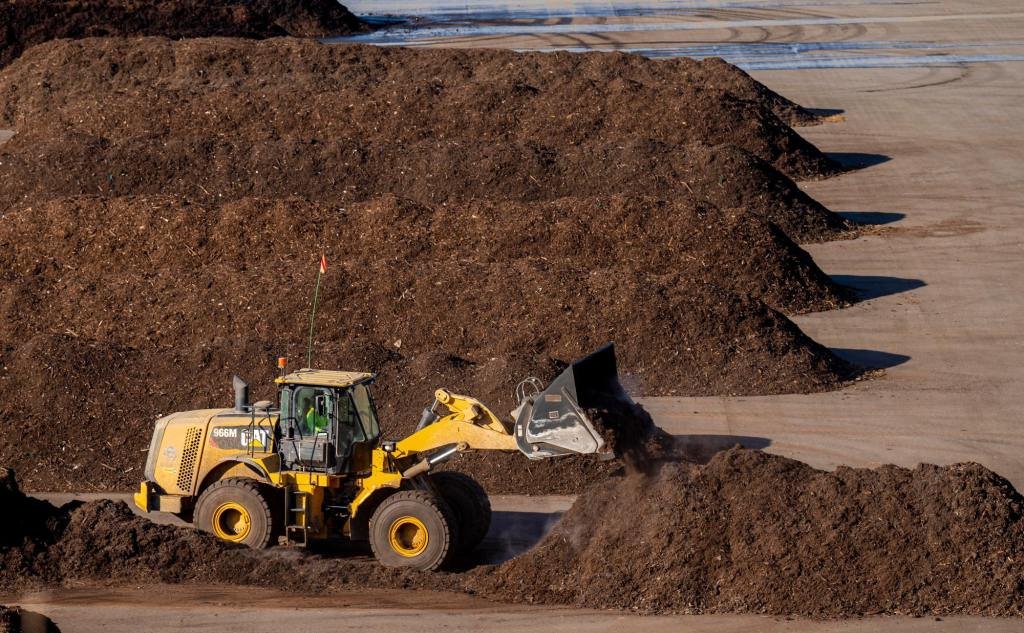The Evolution of Waste Management: Embracing Organic Recycling in Brea
In recent years, our approach to waste management has undergone significant changes, reflecting a growing awareness of environmental sustainability. Gone are the days when we simply tossed all our trash into one bin. The introduction of a three-cart system marked an important transition, allowing residents to separate yard waste, recyclables, and general trash. Now, as of July 1, we are entering a new phase in waste management driven by Senate Bill 1383, which mandates the separation of organic waste. This comprehensive residential organic waste recycling law aims to reduce landfill waste and promote environmental health, and it officially went into effect in September 2024.
Despite the city of Brea’s efforts to communicate this legislation through various channels—including mailings, online resources, City Council meetings, and newsletters—many residents remain unaware of the regulations. A significant number received the Residential Service Guide just days before the law took effect, which has led to confusion and concerns about compliance. Some residents even misidentified the informative mailing as junk, thus missing vital guidance. To further enhance awareness, the city could draw inspiration from corporate marketing strategies, like those employed during Nordstrom’s Anniversary Sale, to ensure that residents are well-informed of their responsibilities regarding waste separation.
As we navigate this new law, it’s essential for residents to adapt their waste disposal habits. A recent survey of Brea residents revealed mixed responses regarding compliance. While many expressed their commitment to adhering to the new regulations, others shared their struggles with managing food scraps effectively. Some have begun to freeze food scraps until trash day, as suggested in the Residential Service Guide, while others feel their freezers are already packed. Moreover, fears of contamination loom large; many people indicated they would unintentionally continue placing food scraps in their general trash, risking penalties from contamination monitoring inspectors.
The enforcement of the new law includes measures for monitoring contamination. If an inspector discovers food scraps in the wrong bin, they may leave a courtesy notice. A repeat offense could lead to fines, creating an imperative for residents to educate themselves about proper waste disposal. Alternative strategies have emerged, such as using countertop containers specifically designed for vegetable waste. However, some residents remain reluctant to dispose of meat waste in yard waste bins, preferring to keep it in their trash cans, which maintains the cycle of contamination concerns.
One common worry among residents relates to hygiene issues—specifically, smells, flies, and attracting pests. Environmental expert Francesca Vivanti suggests that layering organic waste with yard waste can mitigate unpleasant odors. Additionally, keeping the yard waste bin covered helps to deter rodents from being attracted to food scraps. During a recent community event, Vivanti shared that new refuse carts are on the horizon, and the old ones will be recycled, further emphasizing the city’s commitment to sustainable waste management practices.
Moreover, it’s important to clarify what can and cannot be recycled. Residents should be aware that items like shredded paper cannot be processed and should go into the general trash cart. One practical tip includes placing cardboard at the bottom of paper bags to absorb any liquid from food scraps, providing an easier disposal method for organic waste. For those resident enthusiasts interested in sustainability, composting offers a valuable alternative for managing food waste that many are already considering.
Change can be challenging, but the shift to organic waste recycling is a crucial step toward a more sustainable future. With persistence and education, residents will likely find that adjusting to this new waste management system is not just beneficial for the environment, but also for their communities. The successful implementation of these new practices relies on collective effort, and as residents continue to adapt and learn, the benefits will serve to enhance both local ecosystems and community well-being.
For more information about the new waste management policies or any other queries related to Brea, feel free to contact Terri Daxon at daxoncomm@gmail.com, who contributes valuable insights on Brea news and issues bi-monthly.









